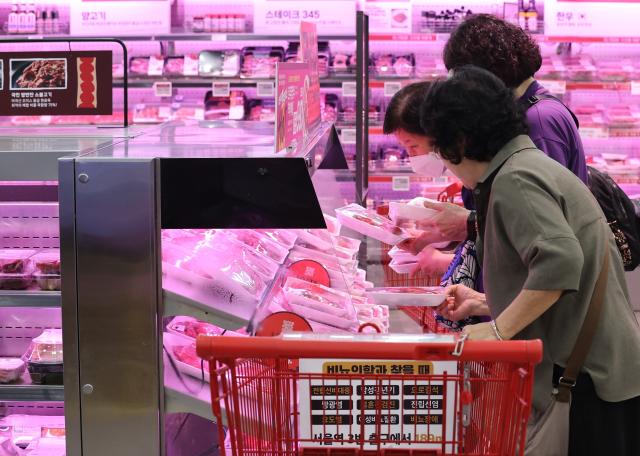
"Prices are so high these days, it makes me hesitant to buy shampoos from my regular zero-waste shop," said Kate McDowell, 30, a regular customer of eco-friendly products in Seoul. "These shampoos tend to be more expensive than regular industrial products."
Ethical purchasing was a widespread trend up until 2022, as consumers, especially younger generations, became increasingly aware of the environment, human rights and animal welfare in their purchasing choices.
A 2022 survey by the Korea Chamber of Commerce and Industry found that 64.5 percent of millennials and Generation Z intended to engage in ethical consumption, with about 70 percent willing to pay more for it.
However, with inflation soaring, even the most committed consumers are now skeptical about how much they can afford to spend.
"Most of the products have short expiration dates and cost more than regular ones," said Kim Min-young, a 23-year-old student at Kookmin University in Seoul.
She had recently cut back on environmentally friendly lip balms and lotions. "With their prices increasing by around 20 percent compared to last year, they just are not meritable enough to buy," she added.
The consumer price index, a key measure of inflation, for May rose 2.7 percent year-on-year.
"During economic slumps, customers tend to favor private brand (PB) products," said Suh Yong-gu, a professor of marketing at Sookmyung Women's University.
"As most eco-friendly products tend to cost more than PB products, overall ethical consumption can decrease." PB products are manufactured and distributed by retailers and are generally cheaper than standard products.
As customers tighten their wallets, companies specializing in sustainability goods are taking a hit.
"Customer numbers have shrunk noticeably this year compared to last year when the media reported much on ethical consumption," said Lee Bo-Hyung, chairman of TanTan Zero in Seoul, which sells upcycled products including cosmetics, soaps, and vegan cakes. "Zero-waste soap sales have been hit hard," she said.
Cueclyp, a Seoul-based social enterprise that reprocesses used materials into fashion items, has also suffered customer losses.
"Out of all necessity items, clothing tends to lose customers first," a company official said. "We are hosting online sales on most products to draw back customers," she added.
Copyright ⓒ Aju Press All rights reserved.


View more comments